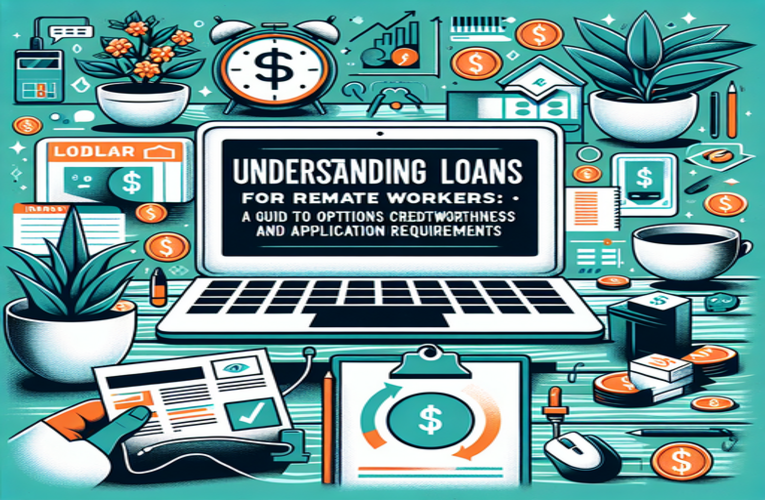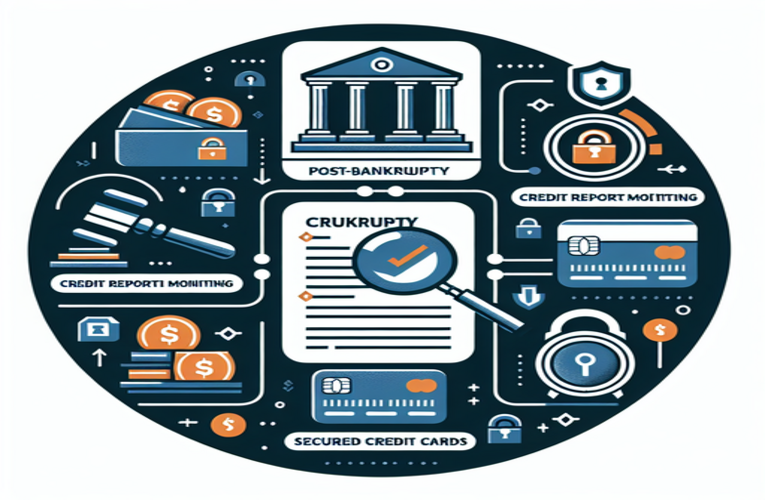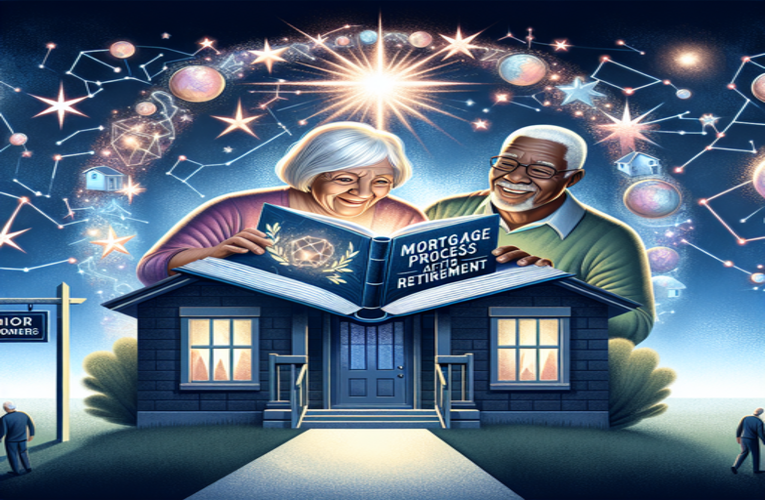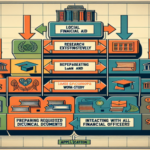Navigating the mortgage process after retirement: a comprehensive guide for senior homeowners
As you embark on your journey into retirement, grasping the multitude of mortgage options for retirees is essential for achieving financial stability in this new chapter of your life. Many seniors face unique challenges when navigating the mortgage process after retirement, and having a solid understanding of the various home financing choices tailored for retirees can simplify this process significantly. In this article, we will delve into essential areas such as:
- Exploring various mortgage options for retirees, including conventional loans, FHA loans, and reverse mortgages available after retirement.
- Understanding eligibility requirements for home loans after retirement that senior homeowners should consider when applying for a mortgage.
- How Social Security income affects mortgage qualification during your retirement years.
- Leveraging reverse mortgages in retirement as a unique alternative that allows retirees to access home equity without regular payments.
By exploring these topics, you will be better equipped to make informed decisions regarding mortgage strategies for retirees and home financing in your retirement years. Whether you’re looking to purchase a new home, refinance your existing mortgage, or leverage the equity in your property, understanding your options empowers you to align your financial strategies with your retirement goals in your retirement mortgage planning. Let’s dive into the details and uncover how these home financing solutions after retirement can enhance your financial well-being during this transformative phase of life.
Table of Contents
Exploring Mortgage Options for Retirees After Retirement
Navigating the mortgage process after retirement can be overwhelming for many seniors, but with the right knowledge, it becomes significantly more manageable. Understanding the various mortgage options tailored to retirees is essential for making sound financial decisions that support your lifestyle and long-term goals. Several loan types are specifically designed or particularly beneficial for seniors, each offering distinct advantages suited to different financial needs.
Popular Mortgage Types for Seniors
- Conventional Loans
Conventional loans are among the most common mortgage options available to retirees. With down payment requirements as low as 3%, they make homeownership accessible even after retirement. For instance, a retiree looking to downsize might utilize savings efficiently without depleting retirement funds. - FHA Loans
Backed by the Federal Housing Administration, FHA loans are advantageous for seniors with credit scores starting at 580. The low down payment of just 3.5% allows retirees to conserve their capital for other essential expenses such as healthcare or travel. - VA Loans
Veterans can benefit significantly from VA loans, which often require no down payment and offer favorable interest rates. Tailored to alleviate financial strain on military retirees, these loans honor the service of veterans by making homeownership more attainable without the burden of substantial upfront costs. - Reverse Mortgages
Reverse mortgages are a compelling option for homeowners aged 62 and over with considerable home equity. This financial product enables retirees to convert their home equity into cash without monthly principal or interest payments. For example, a senior with significant home equity can receive monthly payments to supplement retirement income, providing financial flexibility for living expenses or unexpected medical bills. - Asset Depletion Loans
Retirees with substantial assets but limited regular income might consider asset depletion loans. These loans assess assets like retirement savings and investment portfolios as income for qualification purposes. This approach benefits those who rely on accumulated wealth rather than traditional income streams, allowing them to qualify for mortgages based on their financial assets. - Bank Statement Loans
Bank statement loans are suitable for retirees with irregular income or self-employment earnings. Instead of traditional income verification, lenders evaluate bank deposits over a period (usually 12-24 months) to determine eligibility. This option provides flexibility for seniors whose income comes from dividends, rental properties, or part-time work.
By thoroughly exploring these mortgage options, seniors can confidently navigate the mortgage process after retirement. It’s crucial to assess which loan type aligns best with your financial situation and retirement objectives. Consulting with a knowledgeable mortgage professional can offer personalized insights and help you understand how each mortgage product fits into your overall retirement strategy. Making informed decisions ensures financial stability and peace of mind during your retirement years.
Eligibility Requirements for Senior Homeowners
Understanding eligibility requirements is vital for senior homeowners navigating the mortgage process after retirement. Lenders consider several factors when evaluating mortgage applications from retirees, and being prepared can streamline the approval process. Here are key aspects to consider:
- Equal Lending Laws
Under the Equal Credit Opportunity Act (ECOA), discrimination based on age is prohibited. Being retired does not prevent you from qualifying for a mortgage. Lenders must evaluate your application based on financial criteria, not age. - Income Sources
Lenders assess all reliable income sources, including Social Security benefits, pension payments, retirement account withdrawals, annuities, and investment income. For example, a retiree receiving a monthly pension and dividend income from investments can use both to qualify. - Documentation
Providing thorough documentation is essential. This includes award letters for Social Security, pension statements, 1099 forms, and proof of assets. Proper documentation verifies your income and can expedite the approval process. - Debt-to-Income (DTI) Ratio
Lenders typically prefer a DTI ratio below 43%, although some may accept up to 50%. This means your total monthly debt payments, including the potential mortgage, should not exceed 43% of your gross monthly income. Calculating your DTI in advance can help you understand your borrowing capacity. - Credit Score
A good credit score can qualify you for better mortgage terms and lower interest rates. Seniors should review their credit reports for errors and work on improving their scores if necessary before applying. - Asset Verification
Lenders may require proof of sufficient assets to cover down payments, closing costs, and reserve requirements. Savings accounts, investments, and other assets strengthen your application by demonstrating financial stability.
By understanding and preparing for these eligibility requirements, senior homeowners can more effectively navigate the mortgage process after retirement. Proactive planning, such as organizing financial documents and assessing your financial health, can increase your chances of securing the desired financing. This enables you to make confident decisions that align with your retirement lifestyle and financial objectives.
The Role of Social Security Income in Mortgage Qualification
Navigating the mortgage process after retirement often involves leveraging Social Security income to qualify for a loan. Social Security benefits are a significant income source for many retirees and are recognized by lenders as valid income when evaluating mortgage applications. Understanding how this income influences your borrowing capacity is essential.
Approximately 64% of retirees rely on Social Security as their primary income source. Lenders accept Social Security benefits because they are consistent and predictable. When calculating your debt-to-income (DTI) ratio, including Social Security income can enhance your eligibility for a mortgage by lowering your DTI percentage.
To effectively use Social Security income in your mortgage application, consider the following steps:
- Documentation
Provide your Social Security award letter and recent benefit statements. These documents verify the amount and continuity of your benefits. - Grossing Up Non-Taxable Income
Since Social Security income is often non-taxable, lenders may “gross up” this income by 15-25%. This means they adjust the income upward to account for tax-free status, effectively increasing your qualifying income. - Calculating DTI Ratio
Include your Social Security income in your DTI calculation. For example, if your monthly Social Security benefit is $2,000 and you have no other income, your qualifying income could be increased to $2,500 if grossed up by 25%. - Consider Other Income Sources
If you have additional income streams, such as a pension or investment income, include them in your application. This can further improve your DTI ratio and borrowing potential.
By strategically utilizing Social Security income, retirees can enhance their ability to qualify for a mortgage. It’s advisable to work with lenders experienced in assisting retirees, as they can provide guidance on maximizing your qualifying income and navigating the mortgage process after retirement.
Reverse Mortgages: An Alternative Financing Option
For retirees seeking to access their home equity without monthly mortgage payments, reverse mortgages offer a unique solution. A reverse mortgage allows homeowners aged 62 and older to convert a portion of their home equity into cash, providing financial flexibility during retirement.
Benefits of Reverse Mortgages
- No Monthly Mortgage Payments
Borrowers are not required to make monthly principal or interest payments. The loan balance increases over time and is typically repaid when the borrower sells the home, moves out permanently, or passes away. - Flexible Disbursement Options
Funds can be received as a lump sum, line of credit, monthly payments, or a combination, depending on your financial needs. - Remain in Your Home
Retirees can stay in their homes while accessing the equity they’ve built up over the years.
For example, a retiree with a home valued at $400,000 and no existing mortgage could obtain a reverse mortgage to access a portion of that equity. This money could be used to pay for healthcare expenses, home renovations, or supplement retirement income.
Considerations and Requirements
- Eligibility
Homeowners must be at least 62 years old and use the home as their primary residence. - Financial Obligations
Borrowers must continue to pay property taxes, homeowner’s insurance, and maintain the home. - Costs and Fees
Reverse mortgages come with fees and closing costs, including mortgage insurance premiums, origination fees, and servicing fees. - Impact on Inheritance
The loan balance can grow over time, potentially reducing the amount of inheritance left to heirs.
It’s important to carefully consider whether a reverse mortgage aligns with your financial goals. Consulting with a HUD-approved reverse mortgage counselor can provide valuable insights and ensure you understand the terms and implications.
Comparing Reverse Mortgages to Traditional Mortgages
| Feature | Reverse Mortgage | Traditional Mortgage |
|---|---|---|
| Minimum Age Requirement | 62 years and older | None |
| Monthly Payments | Not required | Required |
| Income Requirements | Flexible | Standard income verification |
| Home Equity Access | Yes, converts equity to cash | Typically builds equity over time |
Navigating the mortgage process after retirement involves exploring all available options. Reverse mortgages can be a valuable tool for retirees needing additional income or financial flexibility. However, it’s essential to weigh the pros and cons and consider how it fits into your overall retirement strategy.
Summary
As you consider your financial options in retirement, here are the key takeaways from the article on navigating the mortgage process after retirement and exploring mortgage solutions for seniors:
- Mortgage Options: Familiarize yourself with various loan types suitable for retirees, such as conventional loans, FHA loans, VA loans, reverse mortgages, asset depletion loans, and bank statement loans that cater to home financing in retirement.
- Eligibility Requirements: Understand that age discrimination is prohibited and know the factors affecting qualification for retirement mortgage options, including income evaluation, documentation, DTI ratio, credit score, and financial stability.
- Social Security Income: Recognize that Social Security is considered a valid income source by lenders, which can enhance your mortgage eligibility after retirement. Prepare necessary documentation to include this income in your mortgage application.
- Reverse Mortgages: Explore reverse mortgages as a mortgage option post-retirement, providing access to home equity without monthly payments, offering financial flexibility but requiring careful consideration of qualification criteria and associated costs.
By taking these insights into account, you can make informed decisions about your home financing options for seniors, ensuring they align with your financial goals during this significant life transition.
Frequently Asked Questions
1. What factors should seniors consider when selecting a mortgage lender?
When choosing a mortgage lender, seniors should evaluate competitive interest rates for retirees, flexible loan terms tailored for seniors, customer service quality based on reviews from elderly borrowers, and the lender’s experience in handling senior-specific mortgage products. It is also important to ensure the lender is knowledgeable about government-backed programs for seniors, such as FHA loans or reverse mortgage options like the Home Equity Conversion Mortgage (HECM).
2. Are there government-backed mortgage programs available to assist seniors?
Yes, there are multiple government mortgage assistance programs for seniors, including the Federal Housing Administration (FHA) 203(b) loan for purchasing homes and the Home Equity Conversion Mortgage (HECM) program for reverse mortgages. These programs typically offer advantages such as lower down payment requirements and repayment plans customized for retirees, making homeownership more accessible for senior individuals.
3. What strategies can seniors use to enhance their credit score before applying for a mortgage?
Seniors looking to improve their credit score prior to a mortgage application should focus on paying down existing debts, maintaining timely payments on all financial accounts, disputing and correcting any errors on their credit reports, and restricting new credit inquiries. Additionally, establishing a longer credit history by keeping older accounts open can positively impact the credit score, thereby increasing eligibility for better mortgage rates and terms.
4. What are the potential risks associated with reverse mortgages for senior homeowners?
The main risks of reverse mortgages for seniors include the possibility of diminishing home equity over time, the obligation to repay the loan if the homeowner moves, sells the property, or passes away, and the accumulation of fees and interest, which can increase the overall cost of the loan. It is essential for seniors to fully understand these risks to make informed decisions about utilizing reverse mortgage products as part of their financial planning.
5. How does Social Security income influence mortgage qualification for seniors?
Social Security benefits can significantly impact a senior’s ability to qualify for a mortgage, as lenders recognize these payments as a stable and reliable source of income. Including Social Security income in the mortgage application can improve the debt-to-income ratio, thereby enhancing the likelihood of mortgage approval and potentially qualifying the senior for more favorable loan terms.
6. What documents are typically required for seniors applying for a mortgage?
Seniors applying for a mortgage will generally need to provide proof of income, such as Social Security statements or pension documentation, bank statements, recent tax returns, and details of existing debts. Additionally, proof of assets and personal identification may be required. Preparing these documents in advance can help streamline the mortgage application process and reduce delays.
7. What unique considerations should self-employed seniors keep in mind when applying for a mortgage?
Self-employed seniors must provide additional documentation, including a comprehensive profit and loss statement, business tax returns for the past two years, and bank statements to demonstrate consistent income. Lenders may assess self-employed income differently compared to traditional employees, often requiring a more in-depth review of financial stability and income reliability to ensure qualification for mortgage approval.
8. How do bank statement loans compare to conventional mortgage loans for seniors?
Bank statement loans offer an alternative to conventional mortgage loans by allowing seniors to qualify based on bank deposit history instead of traditional income verification methods like W-2 forms or pay stubs. This type of loan is particularly beneficial for seniors with irregular income streams or those who are self-employed, providing greater flexibility in demonstrating financial stability and increasing the chances of mortgage approval.
9. What financial planning measures should seniors take into account when considering a mortgage?
Seniors should thoroughly assess their overall financial health, including income sources, monthly expenses, and long-term financial goals. Engaging with a financial advisor can help in evaluating various mortgage options and ensuring that their housing decisions align with their retirement objectives. Additionally, understanding the impact of a mortgage on estate planning and future financial security is crucial for making informed and sustainable housing choices.
10. Why is it beneficial for seniors to consult a financial advisor before selecting a mortgage option?
Consulting a financial advisor provides seniors with personalized financial insights tailored to their unique financial situation. Advisors can help navigate the complexities of different mortgage products, assess the long-term implications of each option, and ensure that the chosen mortgage aligns with the senior’s overall retirement strategy. This professional guidance is invaluable in making informed decisions that support financial stability and peace of mind during retirement.




















